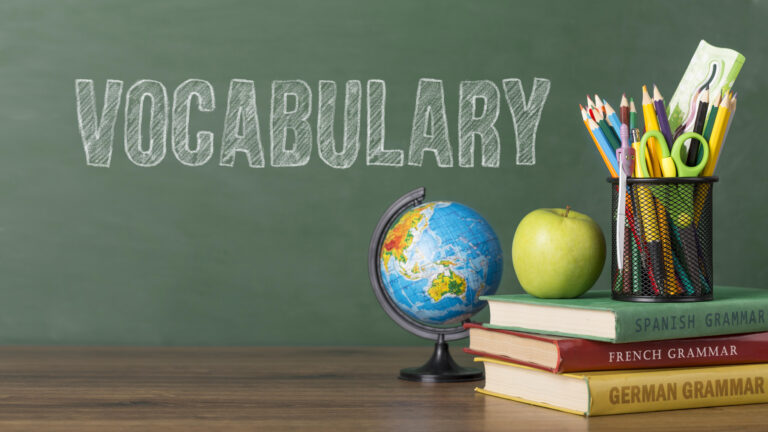- Home
- 7 Ways to Discuss Future Plans in English
- Priya
- 0 Comments
- January 15, 2025
7 Ways to Discuss Future Plans in English
Planning for the future and discussing your aspirations is an important aspect of communication. Being able to articulate your goals clearly not only helps you connect with others but also ensures you express yourself confidently in different contexts. Whether it’s about personal, professional, or casual conversations, mastering this skill is key. This guide will explore seven effective ways to discuss future plans in English, along with useful tips and examples to improve your communication.
Using "Will" for Future Intentions
Expressing Spontaneous Decisions
The auxiliary verb “will” is often used for decisions made on the spot. For example, “I’ll call you tomorrow,” indicates a decision made at the moment of speaking. This usage is common in casual conversations and helps convey quick responses or immediate plans. It’s straightforward and is particularly helpful when you’re unsure of the exact details but want to express intent.
Making Promises or Assurances
“Will” is also used for promises or assurances. Statements like “I’ll help you with the project” or “We’ll visit you soon” convey commitments about the future. This structure is essential in both personal and professional settings where trust and reliability are important. It’s a simple way to show your dedication to fulfilling future tasks.
Predictions Based on Opinions
When making predictions based on your own opinions or beliefs, “will” is often the preferred choice. For instance, “I think it will rain tomorrow” or “She will succeed in her career” are common examples. Using “will” here adds certainty and confidence to your predictions, even if they are subjective.
Using "Going to" for Planned Activities
Discussing Definite Plans
“Going to” is perfect for talking about plans that are already decided or arrangements that have been made. For example, “I’m going to visit my grandparents next weekend” shows a clear intent and a pre-arranged plan. This structure is widely used in informal and formal contexts alike.
Talking About Predictions Based on Evidence
When a prediction is based on visible evidence, “going to” is preferred. For instance, “Look at those clouds; it’s going to rain” or “He’s going to win the race; he’s so far ahead.” This usage helps emphasize the certainty of the prediction based on observable facts.
Expressing Intentions
You can use “going to” to express future intentions clearly. Statements like “I’m going to start a new job next month” or “They’re going to renovate their house” communicate clear objectives or desires. This structure is essential for goal-setting and planning.
Using Present Continuous for Future Arrangements
Using Present Continuous for Future Arrangements
The present continuous tense is frequently used for future events that are scheduled or fixed. For instance, “I’m meeting my friend for lunch tomorrow” or “We’re flying to Paris next week” indicates plans with specific arrangements. This form is common in both professional and personal contexts.
Emphasizing Certainty in Plans
Using the present continuous helps emphasize certainty and confidence in your plans. For example, “She’s starting her new course next month” shows a high level of assurance. It’s particularly useful when you want to communicate detailed and organized plans.
Comparing Present Continuous with Other Forms
While “going to” and “will” can also express future plans, the present continuous is distinct in its focus on pre-arranged activities. For example, “We’re having dinner at 8 p.m.” sounds more definite than “We’ll have dinner at 8 p.m.” Understanding these nuances can help you choose the most appropriate form for your context.
Using Modal Verbs to Indicate Possibility or Necessity
Expressing Possibility with "Might" or "May"
Modal verbs like “might” or “may” are used to discuss future possibilities. For instance, “I might go to the party” or “She may apply for the scholarship” indicates uncertainty or potential actions. These forms are ideal for casual discussions when plans are not yet finalized.
Conveying Obligation with "Must" or "Should"
When discussing future responsibilities or necessary actions, modal verbs such as “must” and “should” are appropriate. For example, “I must finish this report by tomorrow” or “You should prepare for the exam” convey a sense of duty or advice. This usage is important for formal communication and goal-oriented planning.
Offering Suggestions with "Could"
“Could” is used to propose options or ideas for the future. For example, “We could try a new restaurant this weekend” or “He could join us for the meeting.” This modal verb helps keep conversations open-ended and collaborative.
Asking Questions About Future Plans
Using "What" and "When"
Questions like “What are you going to do this weekend?” or “When will you start your new job?” are common for initiating conversations about future plans. These open-ended questions invite detailed responses and are great for casual or formal discussions.
Inquiring About Details
To get more specific information, questions like “Who are you meeting tomorrow?” or “Where will you stay during the trip?” can be used. These inquiries help gather more details and make conversations more engaging.
Polite Questions About Future Arrangements
For formal or polite conversations, you can ask, “Would you mind telling me your plans for next week?” or “Could you let me know your schedule?” These structures are ideal in professional or respectful interactions.
Tips for Fluent and Confident Communication About the Future
Practice Regularly with Real-Life Scenarios
Practicing with friends, family, or language partners helps you become more fluent. For example, discuss your weekend plans or ask someone about theirs. This real-life practice will build confidence and improve your language skills.
Listen to Native Speakers
Paying attention to how native speakers discuss future plans can help you learn natural expressions and improve your intonation. Watching movies, listening to podcasts, or engaging in conversations are great ways to learn.
Use Technology to Improve
Apps and online tools can provide exercises and scenarios to practice discussing future plans. Tools like flashcards, grammar quizzes, and speaking simulations make learning interactive and effective.
Conclusion
Discussing future plans in English is an essential skill for effective communication. By mastering various structures like “will,” “going to,” the present continuous, and modal verbs, you can express your intentions, predictions, and arrangements clearly. Practicing these methods regularly and listening to native speakers will help you gain fluency and confidence. Whether you’re talking about personal goals or professional projects, these strategies will ensure you’re always prepared to discuss the future with clarity and ease.
Section Title
Band 9 Tips for Skimming in IELTS Reading Skimming is one of the most crucial techniques for...
Key Techniques for IELTS Reading Section 1 The IELTS Reading test is divided into three sections...
Vocabulary for IELTS Reading Success Vocabulary plays a crucial role in the IELTS Reading test, as...
Time Management for IELTS Reading The IELTS Reading test is one of the most challenging sections for...
Avoid Common IELTS Reading Mistakes The IELTS Reading test can be tricky, and many candidates lose...
Strategies for Tackling IELTS Reading The IELTS Reading section can be a major challenge due to time...
Guide to High Scores in IELTS Reading The IELTS Reading section is one of the most challenging parts...
Overcome Speed in IELTS Listening Section 4 IELTS Listening Section 4 is one of the most challenging...
Master Academic Lectures in IELTS Section 4 IELTS Listening Section 4 is the most challenging part...










Leave a Comment